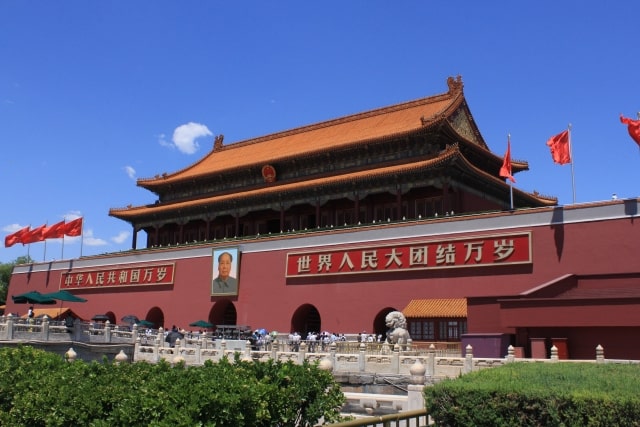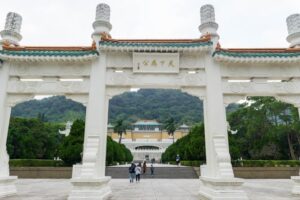In recent years, China has been engaging in worldwide information manipulation through social media, with particular focus on using fake accounts to conduct propaganda activities. In Japan, there have been reports of Chinese accounts inciting Okinawa’s independence, raising concerns about how China utilizes social media to influence domestic politics and public opinion in other countries. This article will explore specific examples of such fake accounts, China’s methods of information manipulation, and their broader impacts.
What is China’s Information Manipulation?
China has a long history of manipulating information domestically and internationally, but in recent years, social media and the internet have become primary tools for these efforts. Beyond using state-run media to broadcast government messages, China employs “supporters” both within and outside the country to spread its information. This is part of the Chinese Communist Party’s propaganda strategy, which aims to extend influence not only within China but globally.
Social media, with its ability to spread information instantly, is an especially effective means of propaganda. In China, internet users known as the “50 Cent Party” are paid to post comments aligning with the government’s agenda, effectively silencing criticism. Internationally, fake accounts have been used to spread Chinese propaganda, often targeting key geopolitical interests.
Examples of Fake Account Usage
One prominent example of China’s fake account activity is its effort to stir up discussions around Okinawa’s independence. The purpose behind this manipulation seems to be to destabilize Japan’s internal affairs and strain its relationship with the U.S., especially due to Okinawa’s strategic importance as a host to U.S. military bases. Some accounts promoting Okinawa’s independence have been traced back to China, highlighting the country’s use of such tactics to create division.
These tactics are not limited to Japan. In the United States, for example, Chinese state actors attempted to spread disinformation during the 2020 presidential election. This included false claims about U.S. biolabs and misleading information about the election process itself.
Purpose and Impact of Information Manipulation
China’s primary objective in using fake accounts and information manipulation is to influence public opinion in a way that serves its interests. For regions like Okinawa, encouraging independence movements could exacerbate political instability and negatively affect the U.S.-Japan alliance.
The broader impact of such manipulation goes beyond immediate public sentiment, potentially influencing long-term foreign policy and national security decisions. In the U.S., for instance, the spread of fake news has led to concerns about the integrity of elections and deepened social divides.
Impact on Other Countries and Their Responses
China’s influence campaigns are not restricted to Japan or the United States. In Australia, platforms such as WeChat and TikTok have been implicated in spreading Chinese government propaganda. These activities have raised concerns about threats to Australian democracy, prompting discussions on introducing laws and regulations to counter such interference.
Elsewhere, in Europe and Africa, China’s influence operations have been linked to its Belt and Road Initiative and other efforts to expand its global influence. Governments and media in these regions are becoming more vigilant and are implementing measures to combat such manipulation.
Countermeasures and Future Outlook
In response to China’s fake accounts and information manipulation, various countries are stepping up their efforts. Social media companies are also working to remove fake accounts and strengthen their monitoring systems, but China’s tactics are becoming more sophisticated, making them harder to detect. This includes the use of AI-generated news and fake journalist profiles, which are difficult to address with traditional countermeasures.
In the future, stronger cooperation between governments and social media platforms will be necessary to enhance transparency and react quickly to disinformation. Additionally, educating the public about media literacy and the risks of information manipulation will play a key role in addressing this issue.
Conclusion
China’s use of fake accounts and information manipulation is a serious threat to democracy and international relations. The efforts to incite Okinawa’s independence are just one example of how China’s tactics can impact not only Japan but also its relations with allies like the U.S. Similar efforts are being observed in many other countries, and countermeasures will need to be both swift and comprehensive to combat these evolving threats. Collaboration between governments, social media companies, and the public will be crucial in preventing the spread of disinformation.
The Importance of Trusting Reliable Information Sources
With so much information circulating on the internet, especially on sensitive international and political topics, it is crucial to rely on trustworthy sources. When it comes to information about Japan, it is particularly important to prioritize data and reports from reliable Japanese sources, especially those produced by Japanese experts and reputable organizations. Avoid being swayed by foreign media or ambiguous sources, and strive to base your understanding on accurate and well-supported information.





Comments